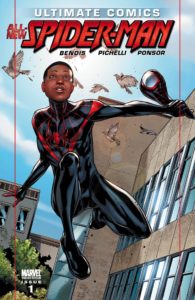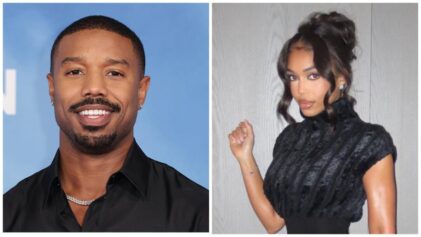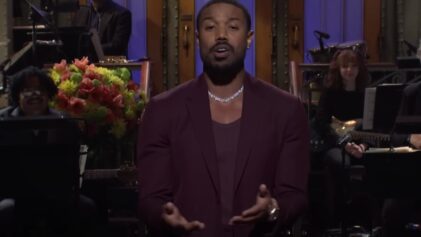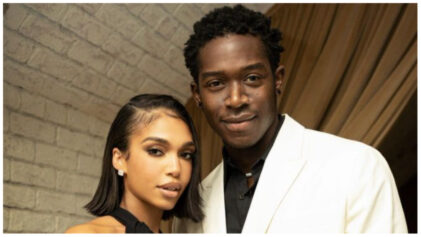In the Marvel Comics world, we’ve recently seen Thor become a woman and African American character Sam Wilson, aka The Falcon, become the new Captain America. Now, Marvel continues its superhero shake-up by upgrading Black-Latino Spider-Man, Miles Morales, to the main Marvel universe. Morales is a version of Spider-Man in the alternate universe line of comic books called Ultimate Marvel, but Marvel announced this week that the character would be taking center stage in the main storyline comics due to popular demand.
Ultimate Spider-Man comic book writer Brian Michael Bendis spoke to Marvel.com about what influenced the decision.
“This is a direct result of the grassroots, passionate response to the character as both an individual and what he represents to the readership. This is a direct result of very loud voices telling Marvel what they want. Miles, a child of color, will be Spider-Man. Not Ultimate Spider-Man, not Spectacular Spider-Man, not Amazing Spider-Man—Spider-Man,” he said.
Miles is a half-Black, half-Puerto Rican teenager living in New York facing familial conflicts and the challenges of balancing his superhero responsibilities with his high school life. The character was introduced in 2011, and draws inspiration from both President Obama and writer-actor-rapper Donald Glover, who was famously the center of a 2010 campaign to be cast as the Black Peter Parker in the Amazing Spider-Man films. Thanks to recently leaked Sony emails stating in no uncertain terms that Parker must be white, we now know why Glover was never an option for the role.
While Miles is the new Spider-Man, Marvel hasn’t done away with Peter Parker altogether. He will have a place in the series as Morales’ mentor. It’s only fitting that Morales take the reigns. Much more than a white Peter Parker, Miles Morales is representative of the extremely diverse New York population and today’s American youth, which is more diverse than ever.
The beauty of the Miles Morales character, however, is that his story doesn’t make race a focus, and he’s connected with readers of all backgrounds.
“When we first peeled back Spider-Man’s iconic mask to reveal a new face—that of African-American/Hispanic Miles Morales—we didn’t dare dream that he’d connect the way he has with so many fans of all creeds and colors,” Marvel Editor-In-Chief Axel Alonso said to NBC News in an e-mail. “That speaks volumes about the growing comic book audience and the universality of Miles’ story.”
The shift to Morales is a part of an “All-New, All-Different” Marvel universe that the company is unveiling in response to fans’ cry for diversity. It also includes the aforementioned reinvention of Thor as a woman, a Black Captain America, and Ms. Marvel as the comic’s first Muslim superhero. This exciting news comes at a time when we are also seeing more diversity in connection with film adaptations of Marvel’s comic books.
Actor Michael B. Jordan is Johnny Storm (The Torch) in the new Fantastic Four reboot—though he was met with heavy criticism for it. And Selma director Ava Duvernay has been in talks with Marvel Studios to helm the upcoming Black Panther film. If she is ultimately chosen, Duvernay would be the first Black person and first woman to direct a Marvel movie.
Fans shouldn’t expect to see Miles Morales on screen anytime soon, though. While fans rallied for Morales to be Spider-Man in the newest cinematic reboot of the character, any hopes of that were dashed on Tuesday when the studios revealed their “new” Spider-Man to be 19-year-old Caucasian actor, Tom Holland, as Peter Parker.
Still, the fact that Marvel Comics even created a minority Spider-Man and then promoted him to the main Marvel Universe speaks volumes. If the success of the character continues, it’s only a matter of time before a film follows, reinforcing to young Black and Latino viewers on a grander scale that anyone, including them, can be a superhero.



